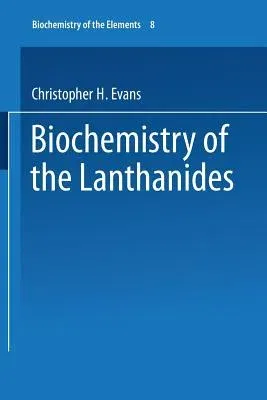Christopher H Evans
(Author)Biochemistry of the Lanthanides (Softcover Reprint of the Original 1st 1990)Paperback - Softcover Reprint of the Original 1st 1990, 14 August 2013

Qty
1
Turbo
Ships in 2 - 3 days
In Stock
Free Delivery
Cash on Delivery
15 Days
Free Returns
Secure Checkout
Part of Series
Biochemistry of the Elements
Print Length
444 pages
Language
English
Publisher
Springer
Date Published
14 Aug 2013
ISBN-10
1468487507
ISBN-13
9781468487503
Description
Product Details
Author:
Book Edition:
Softcover Reprint of the Original 1st 1990
Book Format:
Paperback
Country of Origin:
NL
Date Published:
14 August 2013
Dimensions:
22.86 x
15.24 x
2.62 cm
ISBN-10:
1468487507
ISBN-13:
9781468487503
Language:
English
Location:
New York, NY
Pages:
444
Publisher:
Series:
Weight:
675.85 gm

